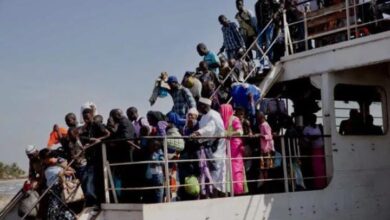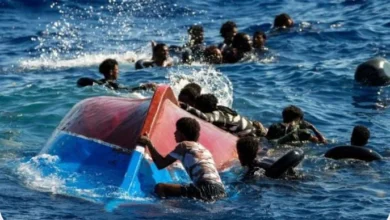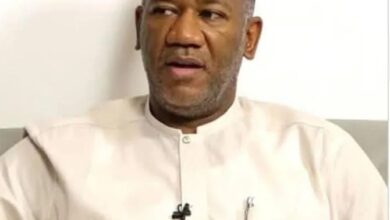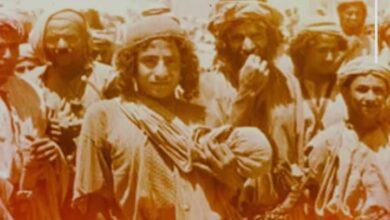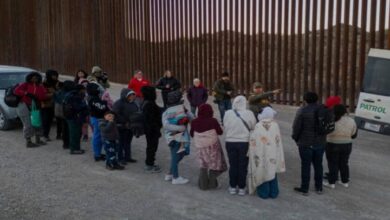From “Balla” to Nouakchott: How the Deportation of Malians Sparked a Silent Crisis Between Two Nations

By: Mohamed Abdarahman
Ould Abdallah – Special Report
Between the border village of Balla and the sprawling squares of Nouakchott, a silent crisis slowly snowballed—only to explode suddenly in the faces of Mauritanian traders expelled from a weekly market in a nearby Malian town. The incident was a clear manifestation of a growing popular backlash to what was perceived as a collective humiliation endured by Malians inside Mauritanian territory.
So, what exactly happened? What are the deeper roots of this unprecedented escalation? And how can a seemingly quiet issue threaten the social fabric and trade exchange that have quietly flourished for decades?
The Scene: Mauritanian Traders Expelled from Balla Market
Last weekend, several Mauritanian traders—accustomed to crossing the border to sell their goods in the weekly market of Balla, Mali—were suddenly denied entry and prohibited from selling their merchandise. There were no official government orders; rather, it was a spontaneous move by local Malian citizens who deemed the Mauritanians’ presence “provocative” in light of what they described as the “humiliating deportation” of their compatriots from Mauritania.
Mohamed El-Amin Ould Mberik, one of the traders expelled from the market, recounted:
> “We didn’t do anything wrong. We were selling like we always do, peacefully. Suddenly we were told, ‘Go back where you came from; our brothers have been expelled from your land!’”
He added:
> “This market isn’t just a marketplace—it’s a lifeline between us and our brothers in Mali. Suddenly, we were treated like strangers.”
Background: Silent Deportations Under Official Silence
In recent weeks, Mauritanian authorities reportedly carried out a series of deportations involving dozens of Malian nationals residing in the country—particularly in the Hodh El Gharbi, Hodh El Chargui, Assaba, and Gorgol regions. No official announcements were made, but security sources cited “routine measures targeting foreigners without legal residency papers.”
The reality, however, appears more complex. Eyewitness accounts suggest that the deportations targeted families who had lived in Mauritania for years, students, and even street vendors.
Abdoulaye Touré, a Malian of Soninke origin deported from Kaédi, stated:
> “We didn’t even have time to pack. The police came and told us: ‘Hospitality is over.’”
The Malian Response: Borderland Rage Surfaces
While the Malian government has not released an official statement, public anger in border villages has begun to translate into action on the ground.
Hamidou Diallo, a resident of Balla, said:
> “People here feel humiliated. What’s happening to our brothers in Mauritania is unacceptable. We don’t want violence, but a response was necessary.”
The expulsion of Mauritanian traders was carried out by local youths who claimed their intention was to send a “message of protest,” not to incite strife.
People Before Politics: Deep Ties Beyond Borders
The sudden rise in tensions does not reflect the true nature of the longstanding relationship between the two peoples. Across both sides of the border, extended families are intertwined by kinship, marriage, trade, and shared cultural traditions.
Here, borders don’t divide—they connect.
Cheikh Sidi Mohamed Ould Mahmouden, a community leader in Kobeni, noted:
> “This crisis is temporary. We are not dealing with hostility, but rather an administrative miscalculation that spiraled out of control.”
The Looming Danger: When Markets Become Political Casualties
The true danger lies in the potential disruption of traditional trade networks that have long served as pillars of stability in the border regions.
Markets like Balla, Jekeni, and Kourou have always functioned more as spaces for social exchange than mere centers for trade.
But rash policies and unjustified deportations could trigger economic and social conflicts, stoke resentment, and open dangerous pathways for extremist groups already active in the region.
Calls for Calm and Containment
In the absence of official responses from either government, activists and traditional leaders have called for reason, urging both sides to refrain from reciprocal actions. They advocate for the establishment of a shared dialogue to address immigration and foreign residency issues in a way that upholds dignity and protects mutual interests.
Some have proposed creating a joint commission between Mauritania and Mali, including representatives from administrative authorities, tribal groups, and civil society, to manage border-related issues through dialogue—not deportations or retaliatory actions.
Conclusion: Will We Learn from Balla?
The Balla Market crisis has exposed the fragility of administrative relations between the two countries—contrasted by the resilience of deep-rooted popular ties.
When an individual is humiliated on one side of the border, the reaction may not come from diplomats—but from the people themselves.
Will Nouakchott and Bamako heed the message?
Or are we standing at the edge of a border crisis that only needs one more spark to ignite?


